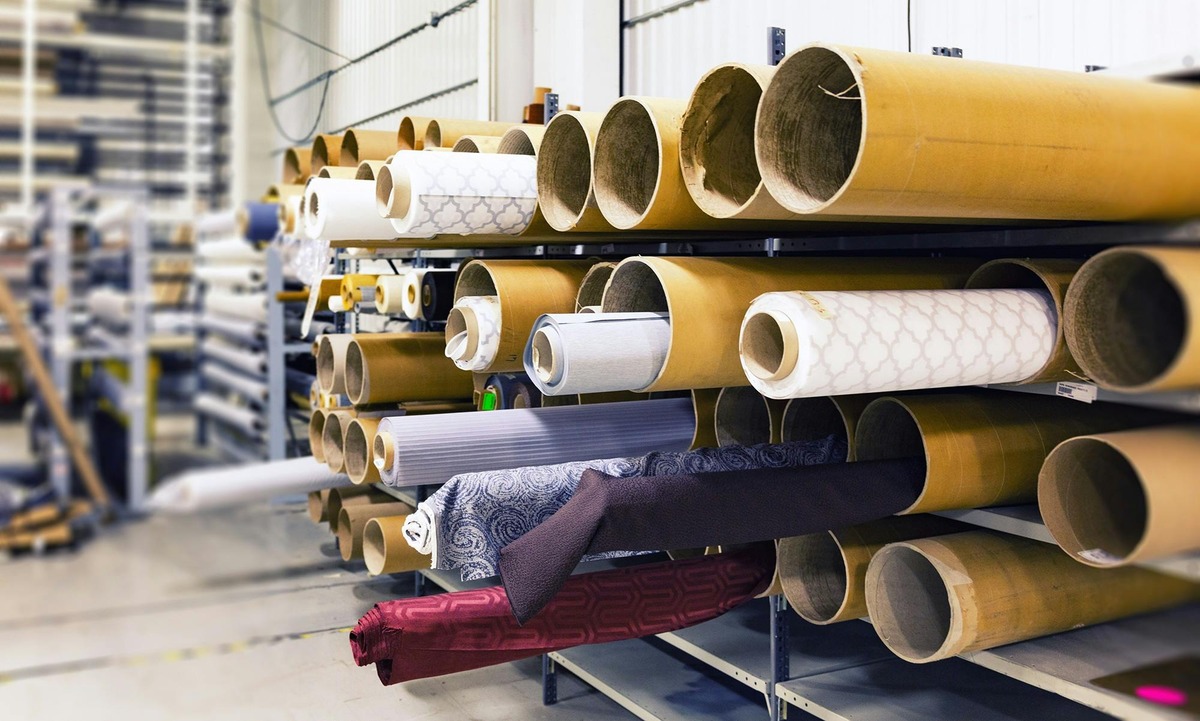 Press Releases That Rank – Boost Authority & Brand Trust Fast!
Press Releases That Rank – Boost Authority & Brand Trust Fast!
Autogenous Vaccines Market: Tailoring Solutions for Animal Health
Written by Gauri Ghogale » Updated on: June 17th, 2025

The Autogenous Vaccines Market is witnessing notable growth as the demand for customized vaccination solutions in animal health increases. Autogenous vaccines, produced from the pathogens found in a specific herd or flock, offer a unique approach to disease prevention in livestock. With a market size of $130.11 million in 2023, the sector is projected to reach $184.30 million by 2030, exhibiting a compound annual growth rate (CAGR) of 5.10%. This blog delves into the current landscape of the autogenous vaccines market, including key players, segments, regional insights, and future prospects.
Understanding Autogenous Vaccines
Autogenous vaccines are developed using pathogens isolated from animals in a particular population. This tailored approach ensures that the vaccine is specific to the diseases affecting a particular herd or flock, enhancing its efficacy. Unlike conventional vaccines, which target widely prevalent pathogens, autogenous vaccines provide a customized defense mechanism against unique disease threats faced by specific groups of animals.
Current Market Overview
Market Size and Growth Projections
- Market Size in 2023: $130.11 million
- Projected Market Size in 2024: $136.74 million
- Projected Market Size in 2030: $184.30 million
- CAGR (2024-2030): 5.10%
The autogenous vaccines market's growth is fueled by an increasing awareness of animal health, rising livestock populations, and a focus on improving productivity in the agriculture sector.
Key Market Segments
The autogenous vaccines market can be divided into segments based on type and application:
By Type
- Poultry: Poultry is one of the largest segments for autogenous vaccines, with vaccines tailored to address diseases such as avian influenza, Newcastle disease, and infectious bursal disease.
- Fishes: The aquaculture sector is increasingly adopting autogenous vaccines to combat specific pathogens affecting fish populations, thus ensuring healthier stock and reducing losses.
- Pigs: Autogenous vaccines are crucial in swine production, helping to prevent diseases like Porcine Reproductive and Respiratory Syndrome (PRRS) and Actinobacillus pleuropneumonia.
- Cattle: In cattle farming, autogenous vaccines address a range of diseases, including respiratory diseases and mastitis, contributing to enhanced herd health and productivity.
By Applications
- Large Farms: Large-scale operations benefit significantly from autogenous vaccines, as they can tailor vaccination strategies to protect substantial livestock populations.
- Small Farms: Small farms also utilize autogenous vaccines, particularly for niche markets where specific disease management is vital for maintaining herd health and ensuring product quality.
Major Regions Covered
The autogenous vaccines market is geographically diverse, with significant growth opportunities across various regions:
- North America: The U.S. and Canada are leading markets due to advanced veterinary healthcare infrastructure, increasing livestock populations, and heightened awareness of animal disease management.
- Europe: Europe demonstrates a strong emphasis on animal welfare and biosecurity, driving the demand for customized vaccination solutions in livestock.
- Asia Pacific: Rapid growth in the livestock sector, coupled with rising awareness of animal health, positions the Asia Pacific region as a key player in the autogenous vaccines market.
- Latin America: The increasing demand for meat and dairy products in Latin America is propelling the adoption of autogenous vaccines among livestock producers.
- Middle East & Africa: Growing livestock populations and improved veterinary healthcare practices are contributing to market growth in this region.
Key Market Players
Several companies are at the forefront of the autogenous vaccines market, playing pivotal roles in research, development, and production:
- Boehringer Ingelheim: A global leader in animal health, Boehringer Ingelheim offers a range of vaccines, including autogenous options tailored to specific livestock diseases.
- Vaxxinova: Specializing in vaccines for poultry and other livestock, Vaxxinova is focused on developing effective solutions for specific pathogens.
- Zoetis: A prominent player in animal health, Zoetis invests in innovative vaccine research, including autogenous vaccines for various animal species.
- Ceva Biovac: Known for its comprehensive vaccine portfolio, Ceva Biovac emphasizes the development of tailored vaccination solutions to meet specific animal health needs.
- Phibro: Phibro provides a range of autogenous vaccines aimed at addressing disease challenges in livestock production, ensuring better health outcomes.
- Elanco: With a commitment to animal health, Elanco offers solutions that include autogenous vaccines to enhance livestock productivity and well-being.
- AniCon Labor GmbH, Cambridge Technologies, AVICARE plus, Genova Labs, Addison Biological Laboratory, ACE Laboratory Services, Deltamune, Dyntec, Hygieia Biological Laboratories: These companies contribute significantly to the autogenous vaccines market, focusing on research and innovation to meet evolving animal health needs.
Market Drivers
- Growing Awareness of Animal Health: Increased awareness among farmers regarding the importance of vaccination in preventing diseases has fueled the demand for autogenous vaccines.
- Rising Livestock Population: The growing global demand for meat, dairy, and other animal products has led to an increase in livestock populations, driving the need for effective disease management solutions.
- Emphasis on Productivity: Livestock producers are increasingly focusing on enhancing productivity and profitability, prompting the adoption of tailored vaccination strategies to improve herd health.
- Advancements in Vaccine Technology: Innovations in vaccine development and production techniques enable the creation of more effective autogenous vaccines, further driving market growth.
Challenges
Despite the promising growth of the autogenous vaccines market, several challenges need to be addressed:
- Regulatory Hurdles: The approval process for autogenous vaccines can be complex and time-consuming, potentially delaying their availability to farmers.
- Cost Considerations: The production of autogenous vaccines can be more expensive than traditional vaccines, making it a consideration for farmers, particularly smaller operations.
- Public Perception: There may be misconceptions about the safety and efficacy of autogenous vaccines, which can affect farmer adoption rates. Educational efforts are crucial to dispel these myths.
- Biosecurity Concerns: Effective implementation of autogenous vaccination strategies requires stringent biosecurity measures to prevent pathogen introduction and spread.
Future Outlook
The future of the autogenous vaccines market appears positive, with several trends shaping its trajectory:
- Increased R&D Investment: As the livestock industry evolves, investments in research and development for customized vaccines will continue to rise, leading to innovative solutions.
- Focus on Sustainable Practices: With a growing emphasis on sustainability in agriculture, autogenous vaccines that enhance animal health and productivity align with environmentally friendly practices.
- Expansion of Aquaculture: The increasing demand for fish and seafood will likely drive the adoption of autogenous vaccines in aquaculture, presenting significant growth opportunities.
- Global Health Initiatives: Collaborative efforts among governments, industry stakeholders, and veterinary organizations will further promote the use of autogenous vaccines to ensure the health and welfare of livestock.
Conclusion
The autogenous vaccines market is poised for growth, driven by a combination of factors including increasing awareness of animal health, rising livestock populations, and advancements in vaccine technology. With a projected market size of $184.30 million by 2030, the sector presents significant opportunities for stakeholders involved in animal health.
Call to Action
As the livestock industry continues to confront disease challenges, it is essential for farmers, veterinarians, and industry leaders to collaborate in advancing the development and adoption of autogenous vaccines. By investing in tailored vaccination solutions, we can improve the health and productivity of livestock, ensuring a sustainable and profitable future for the agriculture sector.
Final Thoughts
The autogenous vaccines market represents a vital component of modern animal health strategies. By focusing on the unique needs of livestock populations, stakeholders can enhance disease prevention efforts and promote overall herd well-being, ultimately leading to improved outcomes for farmers and consumers alike. With continued innovation and commitment, the autogenous vaccines market can significantly contribute to the future of sustainable agriculture.
Browse More:
Four days of anguish: the death of a three-year-old girl in Girona after several failed diagnoses
Note: IndiBlogHub features both user-submitted and editorial content. We do not verify third-party contributions. Read our Disclaimer and Privacy Policyfor details.
Copyright © 2019-2025 IndiBlogHub.com. All rights reserved. Hosted on DigitalOcean for fast, reliable performance.














